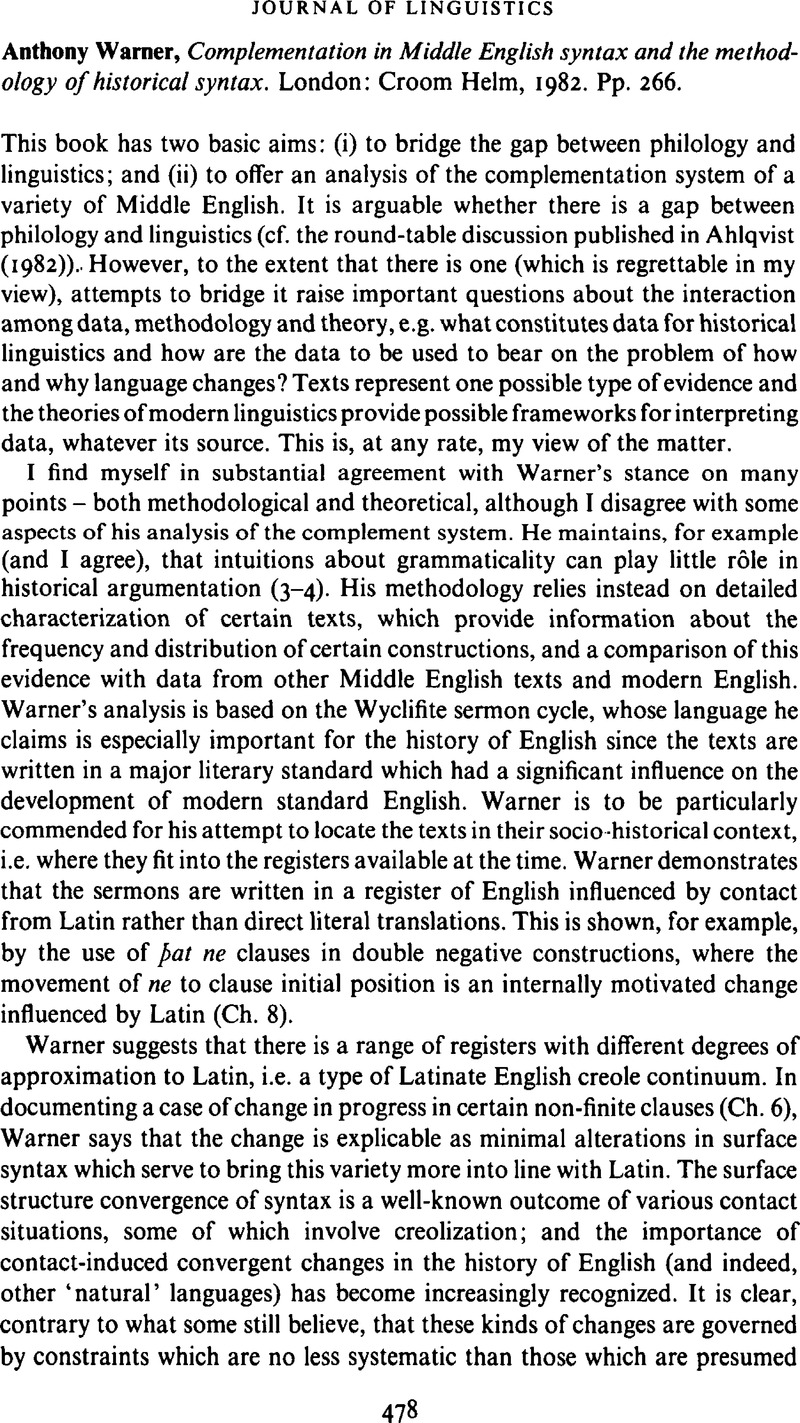Crossref Citations
This article has been cited by the following publications. This list is generated based on data provided by Crossref.
HEGGELUND, ØYSTEIN
2015.
On the use of data in historical linguistics: word order in early English subordinate clauses.
English Language and Linguistics,
Vol. 19,
Issue. 1,
p.
83.
Shank, Christopher
and
Plevoets, Koen
2018.
Investigating the impact of structural factors upon that/zero complementizer alternation patterns in verbs of cognition: a diachronic corpus-based multifactorial analysis.
Research in Corpus Linguistics,
p.
83.
Fanego, Teresa
2020.
Review of Yáñez-Bouza, Nuria, Emma Moore, Linda Van Bergen and Willem B. Hollmann eds. 2019. Categories, Constructions, and Change in English Syntax. Cambridge: Cambridge University Press. ISBN: 978-1-108-41956-7. htps:// doi.org/10.1017/9781108303576.
Research in Corpus Linguistics,
Vol. 8,
Issue. 2,
p.
159.



